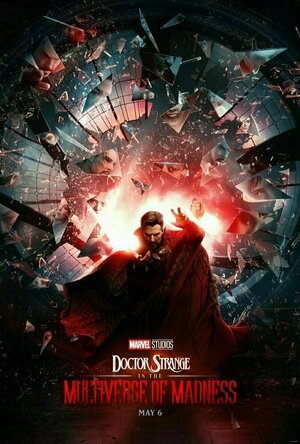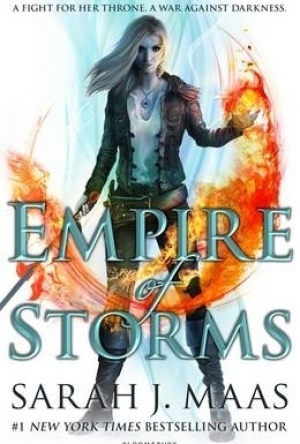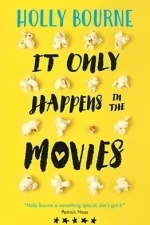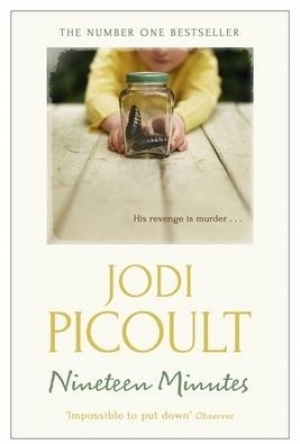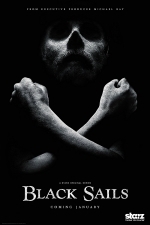
Amnesia: Memories Premium Edition
Entertainment
App
The Premium Edition, which includes all the scenarios, as well as the new one, is available at...

Kitchen Angel - Recipe Organiser & Premium Cookbook
Food & Drink and Book
App
A premium recipe organizer & cookbook with 60 recipes 1. Record, collect, and share your favorite...

Motion Math: Fractions!
Education and Games
App
Play the award-winning learning game that puts the action in fraction! * Excellence in Design Award...

Offline Swahili to English Language Dictionary
Education and Book
App
Our Swahili to English Translator Dictionary has an enormous number of words. It provides you with...
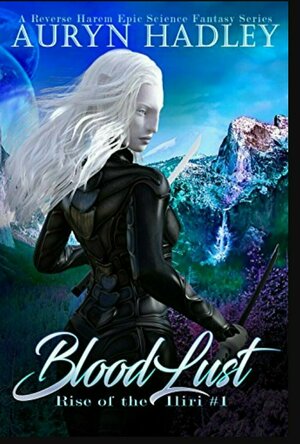
Bloodlust (The Rise Of Iliri #1)
Book
"Bloodlust, and the Rise of the Iliri series as a whole, will blow you mind, break your heart, and...
Young adult Vampire Vampyre Ilirri Young adult Teen
BankofMarquis (1832 KP) rated Doctor Strange in the Multiverse of Madness (2022) in Movies
May 9, 2022
And it does not disappoint for while DOCTOR STRANGE IN THE MULTIVERSE OF MADNESS is not quite as “mad” as one would expect by the build up to this film, it delivers solid action by actors playing characters that are easy to root for (or root against) all done with a wink in the eye and a focus on Marvel’s secret weapon…relationships and heart.
You will find no brooding “dark knights” in this one.
Sprightly Directed by Sam Raimi (THE EVIL DEAD), Multiverse (as I will call it from here on out) finds our titular hero (Benedict Cumberbatch) connecting with - and working to save - a multiverse hopping heroine in the form of America Chavez (Xochitl Gomez) from an evil that wishes to drain her of her multiverse hopping powers.
What happens next is a multiverse hopping action/adventure/horror/chase film that really shows off the cinematic sensibilities of Director Raimi who’s mark is all over this film…for the better. Multiverse swerves really close to being a horror film, but, fortunately for it’s box office fortunes, remains firmly in the action/adventure/superhero genre. Only a director like Raimi can ride this fine line as well as he has and it works for this film.
Cumberbatch, of course, is terrific as Doctor Stephen Strange and he slides, comfortably, back into the cloak and sling-ring. Benedict Wong (Wong - The Sorcerer Supreme), Rachel McAdams (Dr. Christine Palmer) and Chiwetel Ejiofor (Baron Mordo) all reprise their characters from the first film and they all seem re-energized in their roles for this one while Xochitl Gomez makes a winning debut as America Chavez.
But, make no mistake, the personae that steals this film is Elizabeth Olson as the grieving Wanda Maximoff/Scarlett Witch who Dr. Strange reaches out to when America Chavez falls into his lap. She is outstanding and is really the driving force here. It would not be a misnomer to say that this film easily could have been titled THE SCARLET WITCH IN THE MULTIVERSE OF MADNESS.
My one quibble with this film is that it doesn’t go to enough Multiverses to suit my tastes and is not quite as “mad” as one would hope - our hero does spend a rather large amount of time in one multiverse - but that is a minor issue and this one multiverse does bring many fun cameos…cameos that will not be spoiled here.
Which brings up one last point. See this film, if you can, in a theater full of the aforementioned fanboys. The full house IMAX theater that I caught this film in went absolutely nuts when one specific person showed his/her face for their extended cameo and that was a very fun time.
As is DOCTOR STRANGE IN THE MULTIVERSE OF MADNESS - it works well as a stand alone film, but if you want to do “some homework”, check out the Disney+ TV Series WANDAVISION (essential), the first DOCTOR STRANGE movie (good background) and the animated Disney+ series MARVEL’S WHAT IF (some nice callbacks).
And, of course, stay for the end credits…it sets up DOCTOR STRANGE 3, a film that can’t get here soon enough.
Letter Grade: A-
8 stars (out of 10) and you can take that to the Bank(ofMarquis)
Kyera (8 KP) rated Empire of Storms in Books
Feb 1, 2018
This book destroyed me. I cheered when my baby, Abraxos, appeared (legitimately out loud cheered) and wanted to cry at those fateful words. If you've read this book, you know which ones I'm referring to and if not, I can't say because there would be spoilers. Despite the issues and shift in the characterization of some of our leads, this book takes you on an incredible emotional journey with highs that make you cheer (see above) and lows that bring you to tears (almost).
Despite the length of the book, I didn't feel as though the story lagged or the pacing was poor. Any free minute I had, I immediately turned to the book to continue where I left off. Even knowing what was going to happen, it managed to enthrall me.
One of the problems that I have with this book is its portrayal of relationships. There are aspects of it that are so swoon-worthy and make your heart hurt, but there are some that are not healthy. It's nice to see diverse portrayals of love and relationships, but my concern is that a young adult reader might see the territorial Fae nonsense in the book and not realize that it's an extreme. It might seem normalized. As I am not a teenager, I am aware of the intricacies and can roll my eyes at the "nonsense" without putting any weight on the idea. That may not be the same for teen readers.
There are aspects of the character development that seems off and others that, although regrettable, are completely valid. For example, Dorian has gone through an incredible amount of turmoil and emotional upheaval in the last two books. It's understandable that his personality would not quite be the same carefree, flirty scholar that we met in the first book who wished to stand up to his father but could never garner the courage to do so.
In a similar vein, we watch other characters develop into multi-faceted people and understand them more. Manon and Lysandra have become much more interesting characters as they were expanded upon, and at least for me have become some of my favourites. Despite the huge cast of fairly main characters, each is still given the time to shine and grow.
Finally, the world building continues in this book to an immense degree. A combination of the book's size and the various viewpoints has allowed Sarah J Maas to expand the world we have come to know. Erilea has been developed and we are able to see more pieces of Nehemia's homeland, Aelin's kingdom, and so much in between.
I still love this series and highly recommend it to young adult/teen readers who enjoy fantasy books.
Original Review:
These novels are so addicting, emotional and indescribable - but I'm going to try to do them justice. If you've not yet read up to Empire of Storms, please avoid this review as it has spoilers. I try to leave out the major plot points and just focus on the characters/world, but it's not free from them. Please read on only if you've read the series.
Our main cast of beloved and some tolerated, main/supporting characters grows throughout the series. Although we lose Nehemia, which I am still so sad about - we are introduced to the Fae. Their inclusion in the series brings the genre into high fantasy and makes it even more enjoyable. Prior to this series, I hadn't read many novels in which the supernatural creatures were the Fae but now I am obsessed. The world of the Fae isn't experienced or explained much, but I would love to see more of it. Their powers or abilities are so intriguing and well written. Just enough information is given that you can understand what is going on, then beautifully populate the world and battles in your mind.
Sarah J Maas makes you fall in love with each of the characters, whether you liked them when they were first introduced or not. One of the first perspective shifts we experience is when we are introduced to the bloodthirsty Manon Blackbeak. At first, you wish her scenes weren't there as they take away from time with our main characters but by the fifth novel she's one of the characters you're rooting for. Although she's a witch and over one hundred years old, she is given the ability to develop and change over the course of the novels. It takes time because she's learning that things she believed her entire life aren't true and don't need to affect how she views life.
Even characters that we were originally introduced to, like Lysandre are able to evolve and change over the course of the books. She and Celaena start off butting heads and competing, but that doesn't last. They join together and made a formidable pair (especially once magic is restored to the land). Lysandre grows into one of my favourite characters and her wholehearted commitment to the cause is inspiring.
Seeking more information about the Wyrdkeys, Celaena seeks knowledge from the Fae Queen Maeve. Unwilling to give her information away for nothing, Queen Maeve makes a deal that Celaena must train with and impress one of her trusted warriors, Rowan. Prince Rowan is able to manipulate ice and wind, whilst also transforming into a hawk. Her inner circle are sworn to her with a blood oath and a group of Fae warriors that include Rowan, Lorcan, Gavriel, Vaughen, Fenrys and Connall. Later on, this group is affectionately titled Rowan's cadre and some join our heroes on their journey.
Unsurprisingly, we discover that Celaena is actually the Princess (or Queen) of Terrasen and that revelation brings with it some people from her past. Her cousin, Aedion was forced for years to do the bidding of the King of Adarlan whilst secretly helping his people. He is a general and his legion of warriors called the Bane are loyal to him rather than the King. We also meet another person from Terrasen, the daughter of the woman who sacrificed herself to allow Aelin to escape as a child - Elide. She was mistreated by her Uncle for years, until Manon Blackbeak helped her escape. After only a few days, she crosses paths with Lorcan who is a member of Rowan's cadre and they begin to journey together.
Lorcan is not well liked by Rowan or Aelin when we first come across him in Rifthold. He is still bound to Queen Maeve and is seeking to find and destroy the Wyrdkeys. Throughout his journey across Erilea, he discovers that he has a soft spot for Elide and protects her. Some of the other cadre are viewed in a more favourable light by Aelin and her friends, as they attempt to delay their orders from Maeve to help on the quest.
Sarah J Maas writes the best pairings that fill your heart with so much feeling then she rips it out and stomps all over it. Rowan loves Aelin with his whole heart, every part, the good, the bad, the broken and beaten, the assassin, the Queen, the Fae and no one else has ever done that for her. Their love is true and enduring. Heartwrenching and pure. Even though they didn't start off on the best footing, after training her for a time and even breaking his blood oath to Maeve - Rowan is completely enamored. Plus, they're mates so there's nothing more important and bonding. Each relationship is authentic and pulls at your heartstrings.
Throughout the novels, you are able to experience more of the lands with Erilea from the dark, twisted towers of Morath to the Queen's home of Terrasen. They are welcome additions to our mental maps of the land and wonderfully illustrated through words.
This is one of my favourite series by far and is highly recommended to all - also specifically to young adult readers who enjoy well writen novels with developed characters, immersive world-building and fantasy.
mostlyinpyjamas (13 KP) rated It Only Happens in the Movies in Books
Nov 25, 2017
Nobody expects Audrey and Harry to fall in love as hard and fast as they do. But that doesn’t mean things are easy.
Because real love isn’t like the movies…The greatest love story ever told doesn’t feature kissing in the snow, or racing to airports. It features pain and confusion and hope and wonder, and a ban on cheesy clichés. Oh, and Zombies.
~
I’m a huge fan of Holly Bourne, and with It only happens in the movies she has written another cracker!
It only happens in the movies challenges all those cliches from romantic movies, and the message they give about what love and relationships are like.
Audrey is instantly likeable, positive feminist characters are exactly what’s needed and Holly Bourne writes them so well. Audrey is getting over being dumped after having sex for the first time, trying to cope with her mum having a breakdown, and she’s been distant from her friends since her break up, her life is messy – and then she meets Harry.
Harry, with a reputation for being a player! He doesn’t always understand Audrey’s point of view, and he says the wrong things …
‘You’re not like other girls, are you?
but I like Harry. He tries!
In chapter 25, Audrey and her friend Alice talk about first time sex in a refreshingly honest way and this is, in my opinion, such an important thing to see in young adult books. Some girls, for whatever reason, don’t have someone they can talk about these things with, and I feel that it’s such a good thing that authors such as Holly Bourne are putting it out there.
I’ve read a number of feminist YA books this week, and I’m so pleased that they are being written. Conversations about consent, sexism, misogyny and rape culture are so important and these books help to get the message out there.
Excerpt from the book ; Men in films regularly kiss women who don’t want to be kissed. And those are supposed to be the good kisses. Either the woman is taken by surprise, or storming off in a mood, or having a huge go at them, or is engaged to somebody else, or claims she’s just plain Not Interested. And,how do men in movies respond to this clear instruction of “no”? They grab the woman’s face, and kiss her anyway. Roughly. Using their masculine force. And rather than being slapped or even arrested, these movie men are rewarded for their… well… sexual violence. The women “give into” the kiss after a brief moment of fighting it. You see, according to Hollywood, these women wanted to be kissed all along. It was just the male lead’s job to break through the barriers. Barriers like WILFUL CONSENT. Outside Hollywood movies, there is a term for being kissed against your will. This term isn’t “spontaneous” or “romantic” or “passionate”. No, it’s called sexual assault. It’s a crime punishable in the UK by up to ten years in prison.
~
Holly Bourne writes about feminist issues without being patronising and without telling her readers that we should hate all men.
If I’ve made it sound at all like It only happens in the movies is all feminist messages and no story then I must add that it’s entirely not that at all.
I enjoyed the story so much that I read it over a weekend, staying up far too late because I just couldn’t put it down. There’s plenty of drama, humour, and some lovely, touching moments! The ending – although it was perfect – exactly the way this story was meant to end – broke me. I cried actual tears.
Love isn’t just a feeling. Love is a choice too. And you may not be able to help your feelings, but you are responsible for the choices you make about what to do with them. (From It only happens in the movies).
Hazel (1853 KP) rated Nineteen Minutes in Books
May 25, 2017
Nineteen Minutes is perhaps Jodi Picoult’s most controversial novel, as well as one of the longest. Lots of things can happen in nineteen minutes including a school shooting resulting in the deaths of ten people. This is what happens at the beginning of this book, leaving hundreds of teachers and students emotionally scarred for the remainder of their lives. Picoult explores the reactions of a community who’s ideas of safety have been shattered, the grief of the victims and their families and, perhaps most importantly, the heartache of the parents of the shooter.
Seventeen-year-old Peter Houghton has had enough of the bullying that he has endured throughout his entire school life. He has no friends, is constantly miserable, possibly suicidal, and so, on a typical morning in March 2007 he decides permanently fix the situation, unthinking of the consequences. But why did he go to such extremes? What circumstances in his life led to firing a gun as the only solution?
As the evidence is gathered in the lead up to the court trial, many key characters question their own involvement in Peter’s life. Firstly there is Josie Cormier, a straight-A student who swapped her childhood friendship with Peter for popularity and her boyfriend Matt, a particularly aggressive bully. Secondly there is Alex Cormier, Josie’s mother, who destroyed her friendship with Peter’s mother after finding their five-year-old children playing with guns in the Houghton’s basement.
If Peter’s father had never owned a selection of hunting rifles, would Peter ever have thought of guns as a way out of his predicament? On the other hand, Lacy Houghton blames herself for not noticing how badly her son was suffering, not just at school, but at home as well, where he had to live up to the memory of his saint-like older brother who died in a car crash the previous year.
Naturally a tragic event such as this changes people, however not always in a negative way. Relationships begin to blossom as characters realize how close they were to losing the ones they love. Alex takes a step back from her demanding job to comfort Josie in the aftermath, thus feeling closer to her than she ever has done before. Alex, a single mother, also opens herself up to a romantic relationship, something she has had no time to seriously consider up until now.
All the while, Defense Attorney Jordan McAfee, who some readers may remember from Salem Falls, fights a losing battle to get Peter acquitted, by arguing and prying into Peter’s emotions to discover his reason for committing murder.
What I like about Picoult’s novels is that there is a lot more to it than a simple storyline. While the story plays out and plot twists happen, the reader is learning something new. In Nineteen Minutes Picoult provides insight into midwifery, psychology and economics – things that are not synonymous with the shootings.
Readers will constantly question whose side of the story they are on. Hundreds of people grow up being bullied and will understand how Peter was feeling; yet they would not pick up a gun. Likewise, by putting themselves in the shoes of the victims readers will think about how they would feel in the same situation. However would anyone be willing to admit that they made someone else’s life a living hell? There is no simple conclusion to Nineteen Minutes; someone will always lose. Nevertheless, Picoult’s fantastic writing skills provide an enthralling story of love and loss.
I cannot recommend this book to readers in general due to the nature of the themes found in the story. Gun crime and school shootings are sadly still an occurrence in the present time, particularly in America, therefore there are thousands of people who have been affected by such an event, whether directly or indirectly as part of a local community. Some readers may find Nineteen Minutes challenging and upsetting, which is why I am not going to encourage everyone to read this book. However, Picoult has excelled herself with this novel and it would be a shame for people not to read it. Fans will not be disappointed with her writing and will love all her characters, possibly even Peter!
Connor Sheffield (293 KP) rated Black Sails - Season 1 in TV
May 30, 2017
This show is a great representation of the life and time of Piracy however, and I can review it from a point of view of someone who knows quite a bit about the golden age of piracy in actual historical facts. Unlike the previous pirate content I reviewed, Blackbeard, this show portrays pirates as scarred, dirty, bloody, and frightening in their own way. However, similar to the Blackbeard short series, the pirates and other characters all have near perfect teeth. It seems to be that only (in what I have seen anyways) the Pirate's of the Caribbean franchise has managed to nail the full historical accuracy of the look of a pirate from clothing, to makeup, to the teeth.
On the other hand, this does not cause much of a disturbance to the viewing of this show, because the drama is brilliant, if you can bare the somewhat slow plot lines unfold as there are many characters in this show, and each have a ship full of issues that all need resolving with very few of them actually being resolved. From love interests, to thievery, betrayal and all round general opposition between old allies and acquaintances. There is a lot of 'business' to deal with on the side of Eleanor Guthrie and her dealings with our main protagonists, among other important characters, some of which are based upon historical figures such as Captain Benjamin Hornigold, Charles Vane, Anne Bonny and Jack Rackham (known throughout history as Calico Jack). All portrayed as tough, cunning and sometimes (most times for Rackham) as humerous.
The production of this show is great, with beautiful sets, great looking props and special effects that make this a believable series to get lost in. It's one of the better pirate themed mediums that I have seen, and I personally really enjoy the drama and suspense of the episodes, as well as the twists and turns of certain scenario's which leave you wanting more.
The cast deliver great performances and make you believe that they are truly men or women to be feared, and not to be double crossed. From Charles Vane's tough exterior, to Eleanor Guthrie's power over trade in Nassau, and even Captain Flint's fear inducing presence, as we watch his secrets spill out into the hands of the wrong people.
This is a show I would recommend to anyone who enjoys the theme of pirates, with some fantasy and a lot of drama, but I should warn you, that it doesn't hold back with neither the nudity or the actions performed, during the state in which someone would be naked. Whether it's the whores in the brothel, or the few short term relationships between characters.
Minor Spoilers - nothing too important.
The first example you see of this extent of mature content, as well as some of the humour of this show, is when John Silver is taken into a whore house, and is told that 'Blackbeard' wishes to see him. When he enters, he finds a woman standing there, and as John Silver points out "You are not Blackbeard" only to discover that the beard, is revealed to be between her legs.
As I said, watch at your own risk but I would recommend it to anyone interested in the theme of Pirates during the Golden Age.
